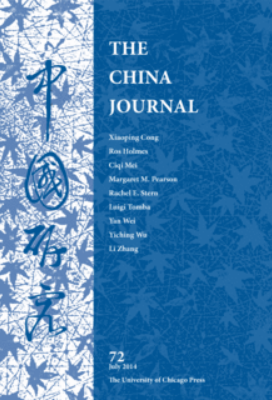By late 1967, there had been clear signs that China’s Cultural Revolution had entered the phase of retrenchment and moderation. Despite continuing radical extravagance, Beijing’s efforts revolved around taming the divided mass movement and establishing new organs on local power. In this nationwide milieu, the province of Hunan stood out as a remarkable excep-tion. It was in Hunan that there emerged a diffused yet vigorous movement in opposition to Beijing’s attempts to rebuild the Party and state authorities. Tis movement, the Shengwulian, has been discussed by a number of China scholars. Conventional scholarly wisdom regarding this critical episode, however, seems to be based on several less-than-accurate premises. Using newly available sources, this paper re-examines the Shengwulian episode, with a special focus on how nationally signicant issues, radiating out from the political center, played themselves out in relation to local contingencies, cleavages and complex power relationships.
Publication Type
- Article



